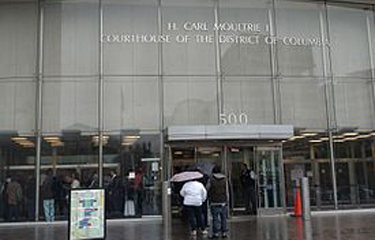Cooke Aquaculture’s efforts to dismiss a lawsuit challenging True North’s sustainability claims and Cooke’s animal welfare claims have failed, and the suit is headed to trial.
A federal judge in Washington, D.C. denied four motions to dismiss by St. John, New Brunswick, Canada-based Cooke Aquaculture, intended to end a lawsuit brought by Animal Outlook, an advocacy group that opposes the farming of animals.
The lawsuit, filed in January 2020, accuses Cooke Aquaculture, its True North Seafood brand, and Wanchese Fish Company of deceiving consumers by falsely claiming to produce salmon using methods that are "sustainable," "natural," and follow "optimal" animal welfare standards.
“Cooke’s sustainability representations lead D.C. consumers to believe that its ‘sustainable’ farms ‘go above and beyond [its] regulatory requirements’ and its products are ‘ecologically sound,’ ‘naturally raised,’ and adhere to ‘optimal’ animal welfare standards,” Animal Outlook Senior Director of Litigation Piper Hoffman told SeafoodSource, citing the complaint.
Cooke does not offer comment on ongoing litigation, Cooke Vice President of Public Relations Joel Richardson told SeafoodSource.
Animal Outlook – formerly named Compassion over Killing – said in 2019 it had that it found evidence of animal abuse at the Cooke Aquaculture salmon hatchery in Bingham, Maine. The group released a video showing incidents where employees at a salmon hatchery – the group claims it is Cooke’s Bingham hatchery – killing fish by slamming them against the ground and stomping on them. The Maine Department of Agriculture’s Animal Welfare Division investigated the incident and found that no punitive measures were necessary after the company implemented a number of reforms.
Animal welfare issues are a key part of the lawsuit, but they are not the only part, Hoffman said.
“The complaint challenges numerous aspects of Cooke’s advertising, including claims related to the environment, the ‘natural’ nature of the product, as well as animal welfare practices.”
The complaint includes evidence beyond the Bingham, Maine hatchery incident, “such as Cooke’s environmental violations in numerous locations even beyond Maine, product testing, and other factors,” Hoffman said.
Cooke contended that the case should be dismissed for several reasons. One was that, while Animal Outlook seeks an order enjoining the Cooke defendants from advertising and selling farm-raised Atlantic salmon in the District of Columbia, Cooke and True North “have never targeted consumers in the District with advertising for farm-raised Atlantic salmon, and they have never sold such salmon in the District,” Cooke said in a filing with the court.
“In other words, Animal Outlook wants the Court to order the Cooke defendants to stop doing something they have never done,” Cooke said.
Cooke also said that one of the defendants named in the complaint, Wanchese Fish Company, is not owned by and does not own any of the other defendants in this case.
“Its primary business is processing scallops and shrimp caught by vessels operating in the Atlantic Ocean and adjacent waters along the East Coast, though it does process other finfish which are from time to time caught by these vessels. It does not grow salmon or otherwise have any business operations in Maine or on the West Coast.”
A single distributor in the District of Columbia has, in the past, purchased minute quantities of salmon from Wanchese under the True North brand, but Wanchese permanently ceased all such activity prior to being named as a party in the lawsuit, according to Cooke.
Richman Law and Policy, Animal Outlook’s attorneys, brought the case against Cooke. Richman is the same firm that has filed class action sustainability lawsuits against Subway and Mowi.
“Producers of animal products are consistently and regularly engaged in false and deceptive advertising practices. It is well-known that consumers carefully consider animal raising and sustainability claims as are an important factor in their buying decisions,” Hoffman said.
The producers of animal products are well-aware of this and regularly tout purported animal care, environmental, or “natural” claims to sell products, Hoffman added.
“These lawsuits seek to promote transparency combat consumer deception that contributes to this exploitation,” she said.
Since the sustainability claims lawsuits began, several seafood suppliers have called Alachua, Florida-based DNA testing lab, Applied Food Technologies to find out how they can be proactive, the company’s president, LeeAnn Applewhite, told SeafoodSource.
Applewhite suggests companies have seafood that is labeled “sustainable” randomly tested to ensure it is the species the company is claiming it is.
“If the species we match is on their sustainability list, if they end up in a lawsuit or get calls, they can show due diligence. It’s a win-win,” Applewhite said.
Large seafood companies, including Bumble Bee and Chicken of the Sea, routinely have Applied Food Technologies test samples of their seafood to ensure it is the exact species that was imported, Applewhite said. However, the majority of importers and seafood sellers don’t test regularly, Applewhite said.
“No one likes to spend money they don’t have to,” she said.
Photo courtesy of Wikimedia Commons







